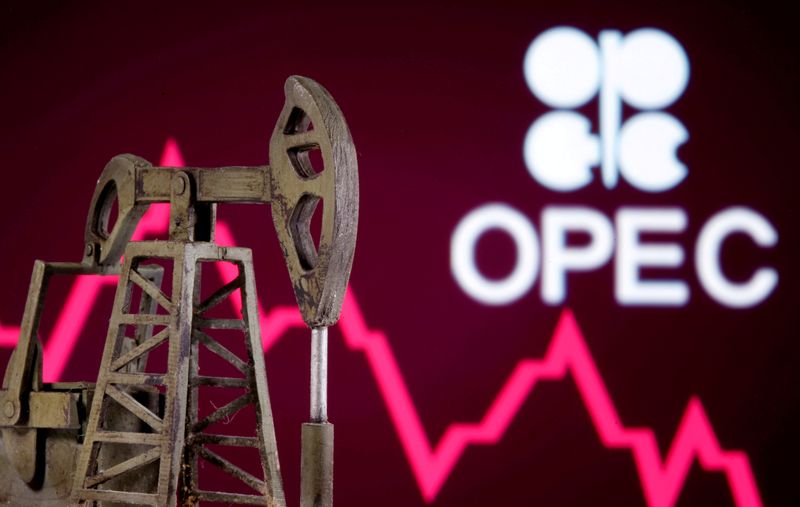By Vladimir Soldatkin, Ahmad Ghaddar and Rania El Gamal
MOSCOW/LONDON/DUBAI (Reuters) - OPEC and allies, led by Russia, are scheduled to hold an online meeting on Thursday to discuss compliance with their agreed output cuts and demand trends amid falling oil prices and a faltering economic recovery outlook.
The key OPEC+ panel will be reviewing an internal document which warned that a rise in coronavirus cases in some countries may curb oil demand despite signs of economic recovery and initial indications of a decline in oil stocks, according to a copy of the report seen by Reuters on Thursday.
The panel of major producers including Saudi Arabia and Russia from the Organization of the Petroleum Exporting Countries and its allies, a group known as OPEC+, is unlikely to recommend any changes to their current output reduction target of 7.7 million barrels per day (bpd), or around 8% of global demand.
They will, however, press laggards such as Iraq, Nigeria and the United Arab Emirates to cut more barrels to compensate for overproduction and possibly extend the period for the compensation, OPEC+ sources said.
On Wednesday, a technical OPEC+ panel, known as the JTC, met to review the compliance of the oil exporting group which was 101% of the agreed target in August, according to OPEC sources and the document seen by Reuters.
"There are signs of economic recovery in some parts of the world, visible through the relative improvement in mobility, and some initial indications of declines in oil stock overhang," the panel said in the report.
"Nevertheless, signs of an increase in COVID-19 infections have appeared in some countries, leading to some worries regarding its impact on economic recovery and oil demand."
The technical panel also said it was concerned about the rise in the cumulative overproduction, which has reached 2.38 million bpd from May until August, according to the report.
Thursday's monthly meeting, known as the Joint Ministerial Monitoring Committee (JMMC), is expected to start at 1200 GMT, OPEC+ sources said.
OPEC+ producers have been reducing production since January 2017 to help support prices and reduce global oil stockpiles. They increased their cuts to a record 9.7 million bpd from May to July after demand plunged in the wake of the coronavirus crisis.

The group has called on Iraq and others to pump below their quota in September to compensate for overproduction between May and July.